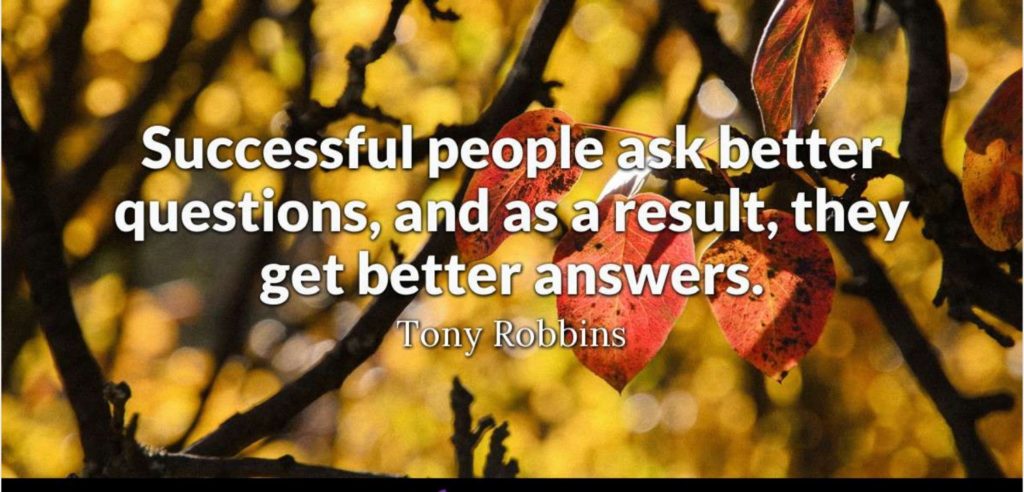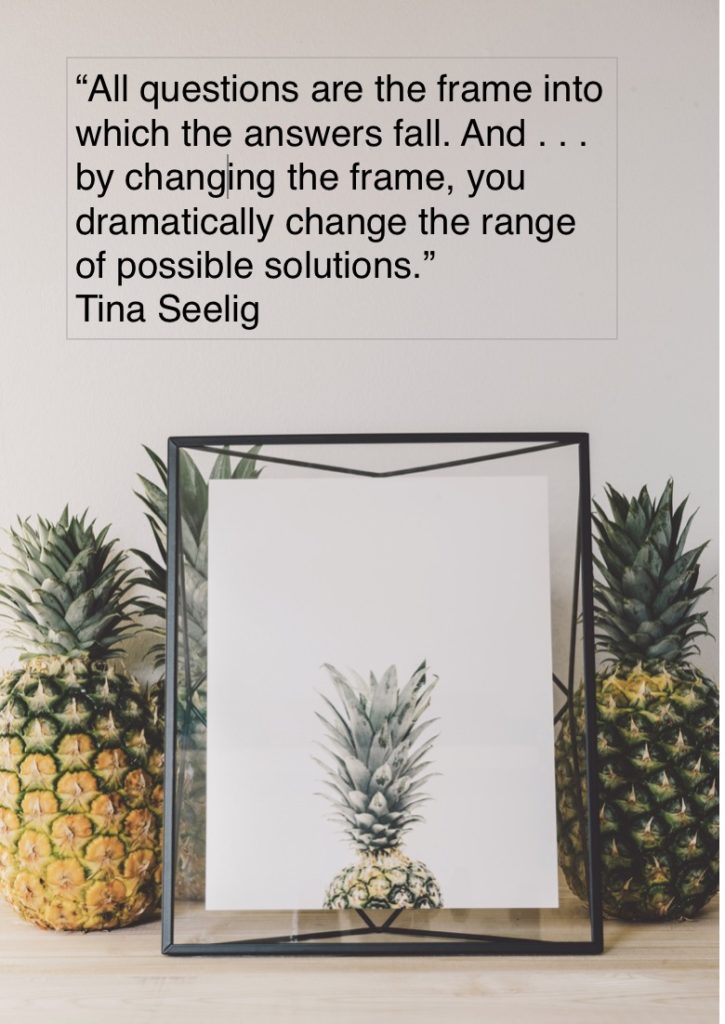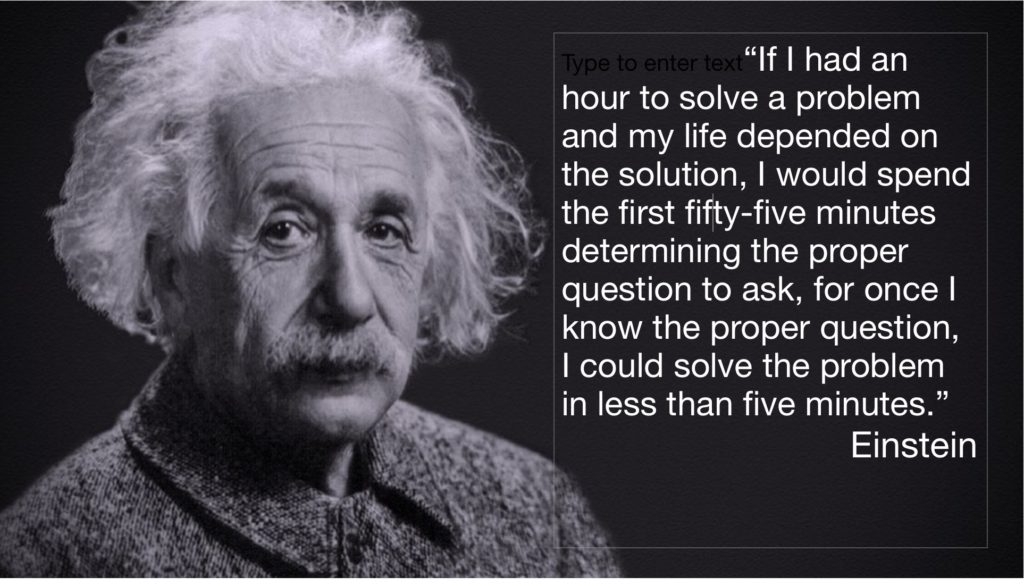
Without a way of understanding the nature of a ‘better question’ this is mere tautology. If we get a better answer then it must have been a better question! However, since we will not know until after the event, this is not a useful way of determining the nature of a ‘better question’.
I asked Talking Infrastructure Vice Chair, and Technology One Super Star, Jeff Roorda, for his view. This was his response.
-
Better questions are those that explore the future possible impacts of today’s decisions.
-
Better questions are those that recognise that the future is uncertain and do not seek to provide false comfort by claiming certainty in the assumptions we make and the outcomes we predict.
-
Better questions look at the things that could happen, and their costs and consequences, so that we can develop scenarios that act as a guide to the way we need to react as the world changes and as we get more information and more feedback.
-
Better questions recognise that we can choose the futures we want, and provide us the means to achieve them.
-
Better questions enable us to put in place a future accountability for present decisions.
These questions have 2 types of power and here Jeff focuses on the constructive power.
If we view the universe as a place of abundance and love then these 5 questions engender hope, gratitude and joy. These are the thoughts of creativity, invention and collaboration. The opposites are scarcity, greed and fear and both joy/gratitude and fear/scarcity are perceptions that are real in ones mind. They are a choice. Leadership is a choice for creativity, invention and collaboration, therefore joy/gratitude. Control and desire for power is the opposite and also a choice.These 5 questions shine a light of truth on perception so we can see what is in error.
If someone says “this infrastructure project will provide these benefits” then this must be tested now and in the future. In a spirit of joy/gratitude we recognise that our understanding is imperfect so we are not afraid to admit the uncertainty of our project/solution. We invite better ideas. Criticism and attack have no meaning – if someone has a better idea we welcome it and test it in the same way our idea was tested.
How does this square with your idea of ‘a better question’? We not only invite better ideas – we warmly welcome them. Your thoughts help us to do a better job. Please comment.

An idea worth exploring.
Two suggestions:
- Read Tina’s article in Fast Company, “How Reframing a Problem Unlocks Innovation,”
- And watch for our forthcoming podcast where we will have fun – and you will too – exploring questions.

How hard can it be to make a podcast? Surely, all you have to do is choose a theme. find someone who is willing to talk on this theme, and then ask them questions. The guest then provides the answers. Job done! Many podcasts have used this answer providing format.
But what if you don’t want answers? What if, instead of providing your listeners with opinions or ready made solutions to a given inquiry, you would really like to support their ability to generate inquiry itself?
Asking better questions is a skill we all need to develop for all areas of our life, and for long-living infrastructure decisions in a rapidly changing world it is critical. These decisions impact the lives of many thousands, if not millions, of people and for many decades to come. Once built, they often cannot be un-built except at incredible cost, damage to the environment, and waste of resources. Moreover the ongoing costs of such structures are, as we know, determined by actions taken at the very earliest stages of decision making, when knowledge is lowest!
Some existing solutions will continue to be relevant as the world changes and others will not but how can we tell which is which? Only by asking questions. New questions. Different questions. Lots of questions!
If we ask the same questions we have asked before, we will get the same answers. And if we ask the same questions – blindly – simply because we have always asked them, we will not even be aware of the mistakes we may be making.
But question asking is hard.
Surely not! Any parent knows that young children ask questions naturally – and inexhaustibly! However, at some stage, parents get worn out with continual questions, many of which they do not find themselves capable of answering – ‘why is the sky blue?’ ‘why do people die?’ etc. So mothers start to say ‘Ask your father!’ and fathers say ‘Ask your mother!’ and both say ‘Not now, I’m busy’. In other words we actively discourage question asking at home.
This is compounded at school, where ‘teaching to the test’ has taken hold and teachers know that they have to instill a certain number of facts in their pupil’s heads lest they, themselves, receive a failing grade! In this grading environment, even well intentioned teachers may feel that time out for answering pupil’s questions let alone encouraging more questions, is time that they just cannot afford.
By the time students reach secondary school, they have learnt two things about questions – one, that it is not their job to ask them, and two, that they are to be feared! Studies have shown that in a typical class teachers ask about 90 questions to one or two by students. And the teacher’s questions are designed to test whether what they have taught has been absorbed. Such questions do not lend themselves to the fun of exploration, only the embarrassment and humiliation of wrong answers.
Now the students get a job and it is not long before they come to recognise that asking questions in this environment brings even more problems – asking a question may reveal how much you do not know, or asking a question, particularly of a senior, may seem as a challenge to ‘the way things are done around here’. Better to keep quiet. By this time we have learnt how not to ask questions.
So if ‘not to ask questions’ is a learnt skill, how do we unlearn?
Those of you who are parents might like the story of Isidor Rabi who won the Nobel Prize in Physics in 1944 for his discovery of nuclear magnetic resonance. He credits his success to his mother who, whenever he returned home from school, would ask ‘Did you ask a good question today? (from Hal Gregerson ‘Questions are the Answer’)


Recent Comments